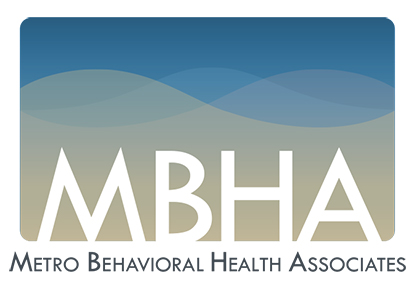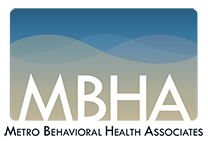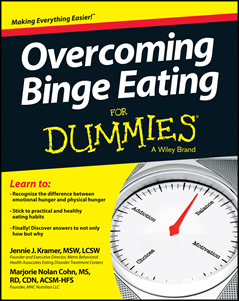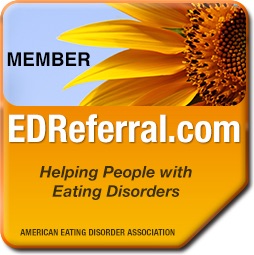Might Your College Student Have an Eating Disorder? How to Tell, What to Do
Might Your College Student Have an Eating Disorder? How to Tell, What to Do | HuffPost Life
If you’re feeling uneasy and concerned that your college-age daughter or son might have an eating disorder, this is a perfect time to think the problem through and figure out whether help might be needed.
By Jennie J. Kramer, MSW, LCSW, Contributor
Director, Metro Behavioral Health Eating Disorders Centers; Co-author, Overcoming Binge Eating for Dummies.

If you’re feeling uneasy and concerned that your college-age daughter or son might have an eating disorder, this is a perfect time to think the problem through and figure out whether help might be needed. A pattern we eating disorder therapists see (often too late to be of much help) is calls from parents in late December, reporting they felt something wasn’t right at Thanksgiving but weren’t sure whether they should say anything.
Typical scenarios go like this. A college kid previously of average size either lost or gained a lot of weight or seems suddenly obsessed with calorie-counting and body image. Perhaps he or she was sketchy about meals or eating in general — showing up late or not at all, saying “I’m not hungry” or spending lots of time in the bathroom after meals. Or maybe there was a new obsession with eating only healthy foods, working off every snack and meal at the gym. Some moms and dads also report the exact reverse, such as a kid who is scarfing down large amounts of food all at once and overall eating way more than before.
Eating disorders are more common than you realize — especially among college students, including boys. Of the 24 million-plus people with eating disorders here in the U.S., 95 percent are between the ages of 12 and 26. Below we will go over some of the (surprising) factors that put college students particularly at risk — but first, let’s talk about what you can do.
Step 1. Talk to your child about your concerns. It’s always better to do this in person (but use your judgment if this isn’t possible). Be specific about your observations, using caring language and offering help and support. Don’t be surprised if your child tells you you’re crazy — this is typical. At least it is the start of a dialogue.
Step 2. See if you and your child can find common ground relating to your concern. Has there been a radical change in mood? Is there lots of anxiety about body image? Check in with your pediatrician or adolescent medicine specialist, who will most likely refer you to a nutritionist or an eating disorder therapist or treatment center. Go.
Step 3. Be realistic. Don’t expect a miracle before the spring semester starts — four weeks of treatment aren’t enough. What you can do in this period is get a realistic assessment and obtain a referral for treatment that is near school.
Step 4. Be prepared — sometimes kids are too unhealthy to return to school. If this happens, get okay with it and consider yourself fortunate to have the opportunity to intervene when you can still make a difference. School can wait — all too often, eating disorders don’t.
Now that we’ve gone through what steps you can take if you do believe your child has an eating disorder, let’s review some of the risk factors and behaviors that should put you on really high alert:
Stress, depression and anxiety. No longer are the college years a carefree prelude to adult responsibilities — colleges are expensive, intensely competitive and many kids find it tough to adjust to life away from home. They’re worried about performing well, fitting in and deciding what to do with the rest of their lives. These kids feel a lot of pressure; almost half of people with eating disorders meet the medical criteria for depression.
Peer pressure, which plays a major role in the development of an eating disorder. Having left their families and local friends behind, college students align themselves with new groups and identify with a new set of norms. Playing college sports, joining a fraternity or sorority and even rooming with a person who diets have all been shown to be eating disorder risk factors. Eating disorder prevalence is also high among gay men — it’s estimated that 20 percent are anorexic and 14 percent are bulimic.
Binge behavior, unfortunately a part of college life. Late-night eating after a party, emotional eating at exam time, binge drinking or eating little or nothing all day and then drinking excessively at parties are all common on college campuses nowadays.
Extreme measures for weight control; these have become the “new normal.” More than half of teenage girls and a third of teen boys report using unhealthy dieting strategies such as skipping meals, substituting caffeine or tobacco for food or purging after meals with laxatives or self-induced vomiting. Not all of them have eating disorders, but these behaviors certainly put them at higher risk.
If you’re anxious about your child, pay attention to your feelings — eating disorders can be deadly. Anorexia, in particular, is deeply dangerous — the death rate associated with this disease kills more than 12 times as many girls age 12-24 than any other cause of death.
If your child belongs to one of the high-risk groups mentioned above… has exhibited changes in appearances (weight gain or loss, new muscular physique)… seems obsessed about controlling his or her weight… or seems sad, anxious or depressed, go with your gut. Your child needs your help.
If you’re struggling with an eating disorder, call the National Eating Disorder Association hotline at 1-800-931-2237.

Helping You Gently Find Your Balance
Ask About Our Free Consulation
Control binge eating and get on the path to recovery. This book provides trusted information, resources, tools, and activities to help you and your loved ones understand your binge eating — and gain control over it.
Certified Eating Disorder Specialist designation by the International Academy of Eating Disorder Professionals



